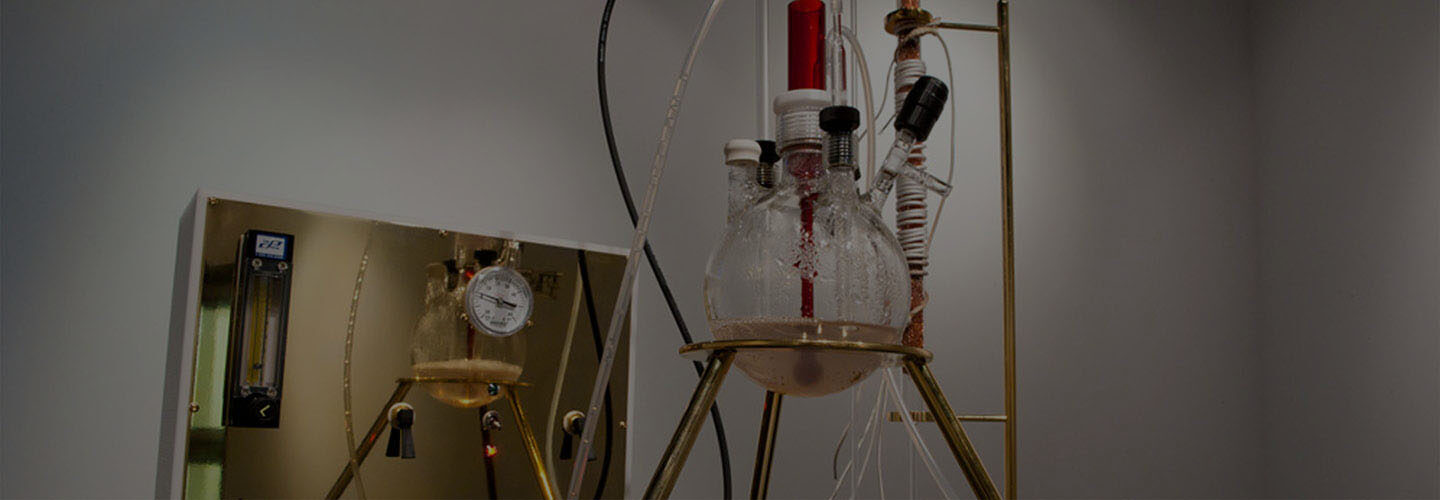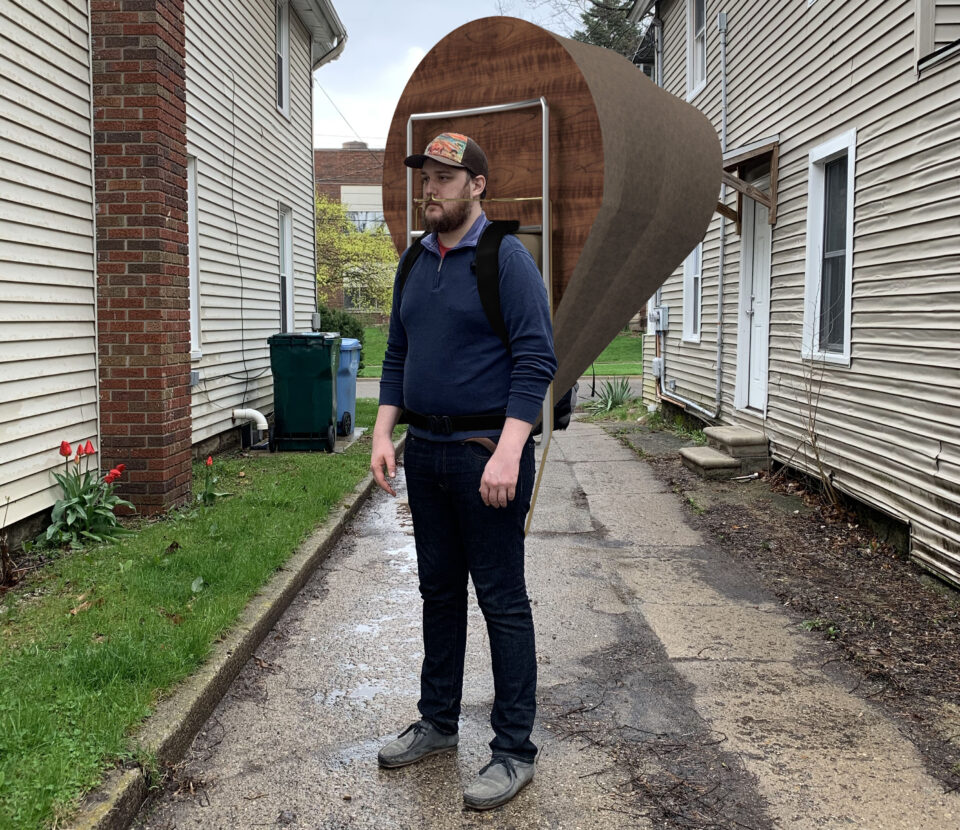STA 385 : DIGITAL FABRICATION I
Krege Art Center, FFT Lab (Room 5)
M/W 11:30 – 2:20
Course Credits: 3
Spring 2019
Instructor: Associate Professor Adam Brown
Office: 27B Kresge Art Center
Office Hours: Tuesday 10-noon or by appointment
Email: brown293@msu.edu
URL: http://adamwbrown.net
Cell: 405-605-9079
Office: 517-432-2465
Connect to course on D2L
COURSE DESCRIPTION:
This course will introduce students to digital design and fabrication techniques within the context of contemporary art, design and critical making. Through a series of technical demonstrations, students will make connections between computer-aided-design / computer-aided-manufacturing (CAD/CAM) software, digital fabrication technologies and the physical world. Students will complete a series of projects exploring 3D modeling, CAD applications, 3D scanning technologies, and experimental approaches to digital model generation. Simultaneously, digital models will be made physical through additive and subtractive fabrication technologies including 3D printing, CNC milling, and laser cutting.
Students are expected to regularly consult the course website for project and homework due dates. You should expect that the schedule will be adjusted periodically throughout the semester, and it is your responsibility to stay informed via the website and regular class assignments.
COURSE REQUIREMENTS:
Students must complete a series of workshops and 4 individual projects, as well as actively participate in class critique to successfully complete this course.
Software:
Mastery of Autodesk Fusion 360, V-Carve and Adobe Illustrator are central to students’ success in this course. Students are expected to pursue intensive self-training by using online tutorials provided by the instructor. While some instruction of these software environments will take place during class, it is expected that students dedicate time outside of class to master the software.
The course is divided into three primary components:
- 3D Modeling and Fabricating Labs
- In class workshops
- 4 projects
MATERIALS AND SUPPLIES:
Please be prepared to spend between $75-150 on supplies for this course. Students are responsible for purchasing their own materials such as 3D prints, plywood, sheet plastics, aluminum and fastening hardware. Vendors and suppliers will be made available to the students via the course website. When appropriate materials may be purchased as a group to reduce costs.
USB Jump Drive (4 Gigs or more)
1/8″ thick cast acrylic sheet
3-button mouse
Micron pens
Digital caliper
Sketchbook – Very important! Your sketchbooks will be used for concept and idea development.
EVALUATION AND GRADES:
-
attend class regularly—not missing more than a week’s worth of classes;
-
meet due dates for all major assignments;
-
participate in all in-class exercises and activities;
-
complete all informal, writing assignments (e.g. reading reactions);
-
give thoughtful peer feedback during class critique and work faithfully with your group on other collaborative tasks;
-
sustained effort and investment on each project and workshop;
-
make substantive revisions to your projects based on critique;
-
attend 2 lectures outside of class indicated in the course calendar;
-
submit your final portfolio on time.
Projects will be evaluated on the basis of:
• Technical and conceptual quality
• Development throughout the course (strive for excellence)
• Quality of documentation
• A willingness to act on criticism
Grading Criteria:
Attendance – Mandatory
Participation and Workshops – 20%
2 quizes – 20%
Assigned Projects – 60%
Participation:
It is very important that students come to class prepared and participate to their fullest level of ability. Group critique and discussion is an essential tool for developing comprehensive artistic knowledge and vocabulary. Therefore, it is critical that students learn how to talk about their own art and the work of other artists. During critique and class discussion, strive to offer constructive feedback. Listen to the comments made by your peers and the instructor to evaluate the effectiveness of your work. It is important that you express ideas clearly, and have fun. Projects must be complete to be included in a critique. Please pick up after yourself and keep the computer lab clean.
Phone use, texting, e-mailing, and non-course related web surfing is not permitted during class time.
ATTENDANCE:
Attendance is mandatory. Interaction and collaboration are an important aspect of the learning process and are critical for establishing trust among your peers. Please note that three unexcused absences will result in the deduction of 1 full letter grade of STA 385. Being late to class is very disruptive. Please make sure that you arrive to class on time. Attendance will be taken at 11:45. If you arrive after attendance has been taken you are considered to be late. Three late arrivals are equal to one absence.
COMMUNICATION:
Make sure your MSU email account is properly forwarded to the location where you read email.
Physics and Astronomy Machine Shop
Tom Palazzolo
Rob Bennett
LAB HOURS & LOGISTICS:
Access times to the FFT LAB (room 5) will be announced. We will be looking for volunteer monitors to supervise the lab in order to extend working hours. If you are interested in becoming a Lab Monitor, please see me after class. If you wish to reserve and check out equipment such as video cameras, data projectors or for information about the printing lab go to the VRL Info for Faculty and Workshop participants page and/or contact Alex Nichols
Reasonable Accommodation Policy:
Michigan State University is committed to providing equal opportunity for participation in all programs, services and activities. Accommodations for persons with disabilities, with documentation from the MSU Resource Center for Persons with Disabilities (http://www.rcpd.msu.edu), may be requested by contacting me at the start of the term. Contact me as soon as possible so we can discuss accommodations necessary to ensure full participation and facilitate your involvement in this class.
Academic Integrity:
In accordance with MSU’s policies on “Protection of Scholarship and Grades” and “Integrity of Scholarship and Grades,” students in STA 380 are expected to honor principles of truth and honesty in their academic work. Academic honesty entails, among other things, that students will not plagiarize. This means (1) students will not submit someone else’s work as their own (e.g., they will not submit another student’s paper or project, etc., nor will they hand in a paper copied from the web or another published source). Academic honesty also means students (2) will not knowingly permit another student to copy and submit their work as that student’s own and (3) will not use unacknowledged quotations or paraphrases as part of their work. As provided by university policy, such academic dishonesty or plagiarism may be penalized by a failing grade on the assignment or for the course. Failure in a course as a result of academic dishonesty will also result in written notification to the student’s academic dean of the circumstances. Additional discussion of cheating or academic dishonesty is available on the Ombudsman’s web page.
Emergency Protocol:
In the event of an emergency arising within the classroom/lab, the instructor will notify you of what actions that may be required to ensure your safety. It is the responsibility of each student to understand the evacuation, “shelter-in-place,” and “secure-in-place” guidelines posted in each facility and to act in a safe manner. You are allowed to maintain cellular devices in a silent mode during this course, in order to receive emergency SMS text, phone or email messages distributed by the university. When anyone receives such a notification or observes an emergency situation, they should immediately bring it to the attention of the instructor in a way that causes the least disruption. If an evacuation is ordered, please ensure that you do it in a safe manner and facilitate those around you that may not otherwise be able to safely leave. If a shelter-in-place or secure-in-place is ordered, please seek areas of refuge that are safe depending on the emergency encountered and provide assistance if it is advisable to do so.”
Sexual Violence and Misconduct Policy:
Michigan State University is committed to fostering a culture of caring and respect that is free of relationship violence and sexual misconduct, and to ensuring that all affected individuals have access to services. For information on reporting options, confidential advocacy and support resources, university policies and procedures, or how to make a difference on campus, visit the Title IX website at titleix.msu.edu.
Limits to confidentiality. Essays, journals, and other materials submitted for this class are generally considered confidential pursuant to the University’s student record policies. However, students should be aware that University employees, including instructors, may not be able to maintain confidentiality when it conflicts with their responsibility to report certain issues to protect the health and safety of MSU community members and others. As the instructor, I must report the following information to other University offices (including the Department of Police and Public Safety) if you share it with me:
- Suspected child abuse/neglect, even if this maltreatment happened when you were a child;
- Allegations of sexual assault, relationship violence, stalking, or sexual harassment; and
- Credible threats of harm to oneself or to others.
These reports may trigger contact from a campus official who will want to talk with you about the incident that you have shared. In almost all cases, it will be your decision whether you wish to speak with that individual. If you would like to talk about these events in a more confidential setting, you are encouraged to make an appointment with the MSU Counseling and Psychiatric Services.
Copyright notice: Many of the materials created for this course are the intellectual property of Adam Brown. This includes, but is not limited to, the syllabus, lectures and course notes. Except to the extent not protected by copyright law, any use, distribution or sale of such materials requires the permission of the instructor.

